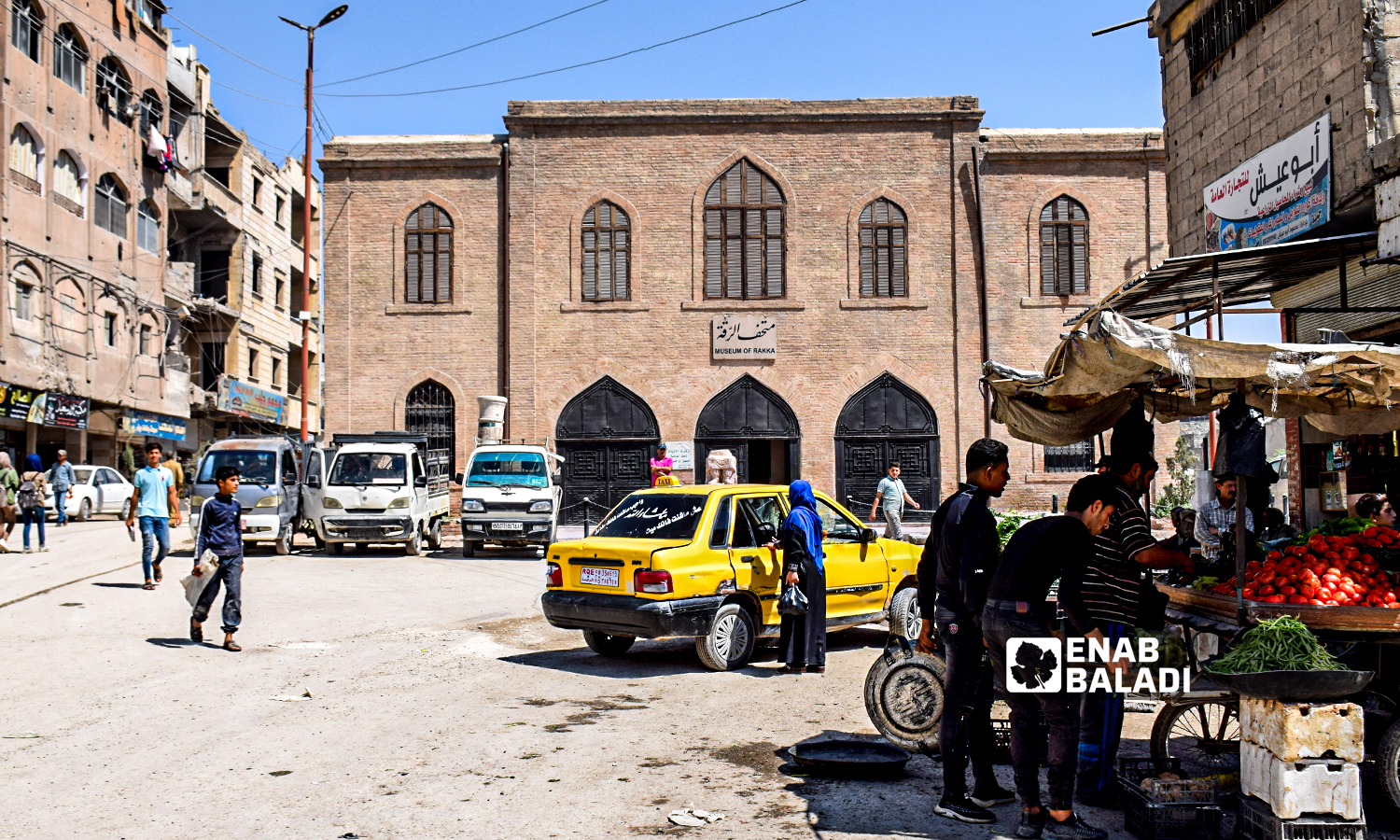



Raqqa – Hussam al-Omar
Mahdi al-Darwish, a 50-year-old merchant of construction materials and metal bars in the city of Raqqa, has not noticed any change in imported merchandise markets since the US Treasury announced that areas in the north of Syria were exempt from Caesar sanctions three months ago.
Al-Darwish told Enab Baladi that he expected a positive impact of the decision to exempt from Caesar Act sanctions in the AANES-held regions in northern and eastern Syria. However, that was not the case, and things stayed the same.
In this report, Enab Baladi explores the views of merchants and officials in AANES-controlled areas in northern and eastern Syria, during which they stated that no positive effect of exempting the region from the Caesar sanctions had yet been achieved.
On 12 May, the United States Treasury Department authorized activities in 12 sectors, including agriculture, construction, and finance, in AANES-held areas in northeastern Syria and a number of areas of northwestern Syria where the Syrian National Army (SNA) is in control.
Bilal al-Jawish (50 years old, a trader from Raqqa) told Enab Baladi that exempting the region from Caesar sanctions would have no obvious effect as long as investment delegations could not enter the region for several considerations, foremost of which is the security and political instability and the absence of political recognition of the Autonomous Administration of North and East Syria (AANES).
Al-Jawish considered that investors were afraid of putting their money into the markets in the northern and eastern regions of Syria and that they needed recognized laws and government institutions that would protect those funds and investment projects if they were to be launched.
Merchant Mahdi al-Darwish noted that the exemption of the area from Caesar was supposed to be linked to allowing traders to communicate with foreign companies and permitting the entry of commercial delegations into the area to observe the situation and the investment possibilities.
On the other hand, Firas al-Ali (50 years old, a food trader from the city of Raqqa) argues that the potential effect of exempting the region from Caesar’s sanctions lies in the freedom of trade and the retreat of AANES from its monopoly on commercial movement through its affiliated enterprises or figures.
Al-Ali pointed out that the regions of northern and eastern Syria depend on three sources for the entry of goods, namely, regime-controlled areas, opposition-held areas, and crossings linking AANES to the Kurdistan region of Iraq. These sources were not positively affected after the exemption announced by the US Treasury.
He added that the region is adversely affected by the instability generated by the threats that Turkish officials have been issuing for several months now regarding a potential Turkish offensive against the Autonomous Administration of North and East Syria (AANES) and the Syrian Democratic Forces (SDF).
Through the repeated statements of its officials, Turkey insists on launching a military operation against the SDF, which it classifies on its terrorist lists, despite the refusal of the guarantors in the Astana Process, Iran and Russia, who are persuading Ankara to abandon the move.
An AANES government official told Enab Baladi that the declaration of an exemption in northern and eastern Syria was a “political announcement” through which the US wished to send certain political messages to some parties, with no economic benefits that might be attributable to the population or AANES.
The source, whose name has not been mentioned for security reasons, considered that AANES lacks foreign trade institutions, airports, seaports, and global trade routes. All of this, had it existed, could have revived the region’s economy after it was exempted from Caesar’s sanctions.
The official noted that AANES had begun preparing legal mechanisms and projects that could revive the region’s economy after the exemption decision and that it had planned to focus on agricultural and infrastructure projects.
Last May, North Press Agency quoted the joint chairman of AANES’ Economy Authority, Salman Barodo, as saying that AANES was in the process of passing an investment law after exempting its regions from Caesar sanctions.
He considered that the region had been significantly affected during the years of Caesar sanctions on Syria and that exempting it at the present time is good and welcomed by AANES, as such exemption will lead to the revival of its economy in the future.
if you think the article contain wrong information or you have additional details Send Correction